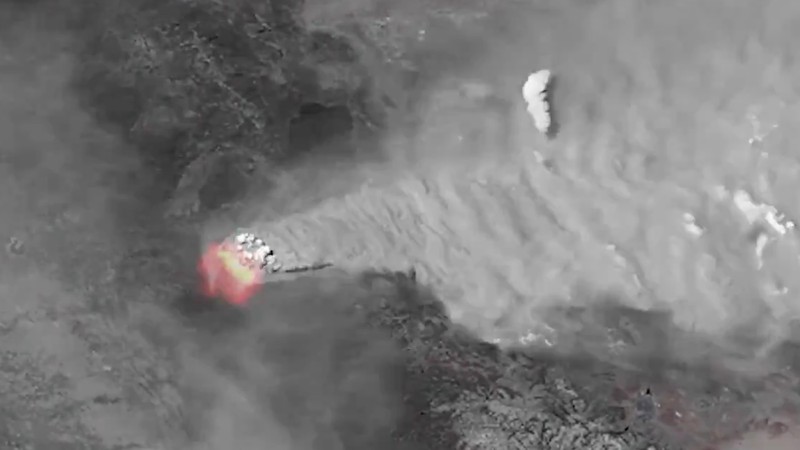
The Caldor Fire in El Dorado County, seen via satellite photo. National Oceanic and Atmospheric Administration Public Domain
The “explosive” Caldor Fire in El Dorado County surged from 6,500 acres on Tuesday to nearly 54,000 by Wednesday morning, powered by extreme conditions resulting from climate change. The state firefighting agency Cal Fire reported that the blaze—which has forced the evacuation of 22,000 people and devastated the small town of Grizzly Flats—had scorched 53,772 acres by Wednesday morning.
What Cal Fire described as “unprecedented fire behavior and growth” is being driven by “extremely dry” vegetation in the El Dorado National Forest, combined with powerful southwesterly winds that cause the combustible “fuel” to spread over wide distances. The “extreme” dryness is caused by the 2021 summer’s ongoing drought and heat waves, both conditions brought about by rising global temperatures.
A study by San Jose State University Fire Lab found that moisture levels in the chamise plant in July were at their lowest levels since the lab began recording the data in 2009, and UCLA climate scientist Daniel Swain noted that the state’s vegetation is drying out six weeks ahead of 2021’s pace. Fires fueled by extreme dryness “have a greater tendency to do things like hop over barriers, jump over control lines or roads or bodies of water, or to create their own weather conditions,” Swain explained.
“These winds, combined with low humidity and extremely dry fuels, lead to critical fire weather conditions,” Cal Fire said in an online update.
The Caldor Fire’s sudden, massive expansion stunned even the experts, with Cal Fire officials saying that the spread went twice as fast as in the models designed to predict fire expansion.
The specific cause of the Caldor Fire remained under investigation as of Wednesday. Cal Fire reported that the out-of-control blaze was zero percent contained at that time, as well. On its Twitter account, the El Dorado National Forest announced that it had been closed due to the fire emergency, and Gov. Gavin Newsom declared a state of emergency throughout El Dorado County.
In Butte and Plumas counties, similar conditions are also powering the gargantuan Dixie Fire, which is now the second-largest wildfire ever recorded in California. The Dixie Fire spread to 635,728 acres by Wednesday, but remained just 33 percent contained.
Fire that is said to be “contained” continues to burn, however. “Containment” means only that firefighters have established a perimeter which they believe the fire cannot cross. But dry, windy conditions can allow “contained” fire to breach those boundaries anyway, in some circumstances.
Short articles summarizing reporting by local news sources with linkbacks to the original content.